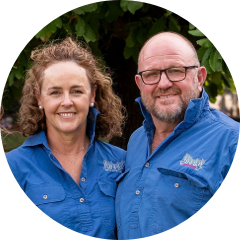GRDC Pulse Check – Northern
This project was completed in 2020.
Project Officer
Kate Coffey
WHY THIS PROJECT WAS NEEDED
Pulses are an important break crop in cropping rotations, providing opportunities for weed, pest and disease management, as well as opportunities to increase soil nitrogen. In the Riverine Plains, acid soils and variable yields have posed barriers for farmers looking to increase the proportion of pulses in their rotations.
The GRDC Northern Pulse Check project sought to support and develop strong profitable pulse production systems across the GRDC Northern Region by engaging with grower, researcher, and industry stakeholders to encourage greater sharing of information through a range of pulse related extension and communications activities.
In short: This project encouraged profitable pulse production. Riverine Plains facilitated discussion group meetings addressed challenges and opportunities with farmers and advisors, focusing on agronomy, soil health benefits, markets and the value chain.
Discussion groups were established to allow growers, advisors, and researchers to identify the challenges and opportunities of pulse crops in the rotation. The Riverine Plains Northern Pulse Check group met two-to-three times each growing season over the life of the project, to discuss various aspects of the pulse value chain. Meetings were facilitated by Kate Coffey, Riverine Plains and guest presenters included marketers, technical specialists, researchers, pulse growers and industry experts.
Project outcomes
As part of the project, a case study was produced with Roy Hamilton, who runs a family mixed farming operation at Rand. Download the case study.
A podcast from the GRDC Northern Pulse Check series was also produced. Listen as Riverine Plains Project Officer, Kate Coffey, speaks to northern region farmers about the issues associated with sowing high rates of large-sized faba beans.
Key messages from the project’s 2023 trials were:
- Due to lower-than-average rainfall during September, 2023 was generally a low disease pressure year for faba beans in the Riverine Plains
- Low levels of Cercospora leaf spot and chocolate spot were detected at both the Daysdale and Bundalong trial sites, with,
the chocolate spot susceptible variety
PBA Bendoc showing a significant yield improvement of up to 1.1t/ha due to fungicide application - Six pulse species were assessed for adaptation at the Daysdale site, with lupins averaging 2.15t/ha, field peas 2.44t/ha, faba beans 2.00t/ ha, lentils 1.21t/ha, vetch 1.16t/ha, and chickpeas averaging 2.22t/ha
- Faba bean yield was lower than expected at the Daysdale site due to the dry finish
- Estimated residual nitrogen legacy from the different pulse species ranged from 97kg N/ ha to 146kg N/ha; the rule of thumb for net biological nitrogen contribution from pulse species is 19 kg N/t of dry matter
- Maintaining seeding rate at 25 plants/m2 or above was essential to optimising grain yield
- Ultimately, the dry September period experienced in 2023 reduced the yield potential of pulse crops across the region, as it coincided with flowering and pod-setting in most pulse species.
Detailed results from this trial were published in Research for the Riverine Plains, 2024. Read the full Growing pulses in the Riverine Plains region article.
Find out more
For further information, please contact Riverine Plains Senior Project Manager Kate Coffey at kate@riverineplains.org.au
Project investment
This was an investment of the Grains Research and Development Corporation (GRDC).
Partners
Focus areas
MORE ON Grains
Our research enhances food production, increases environmental resilience and improves community connection across the Riverine Plains. See how our research creates impact.
-
Grains
Sustainability
-
Grains
Business
-
Grains
Sustainability
-
Grains
Livestock
-
Grains
Livestock
-
Grains
Sustainability
-
Grains
Business
-
Grains
Sustainability
-
Grains
-
Grains
-
Soils
Grains
-
Grains
Soils
-
Drought
Grains
-
Soils
Grains
-
Grains
-
Grains
Soils
-
Soils
Grains
-
Fodder
Grains
-
Grains
-
Grains
Soils
-
Sustainability
Grains
-
Grains
Sustainability
-
Soils
Grains
-
Grains
Sustainability
-
Livestock
Grains
-
Grains
Soils
-
Sustainability
Grains
JOIN RIVERINE PLAINS
Riverine Plains provides opportunities to see new research and innovation, connect with rural communities, and attend informative events.


